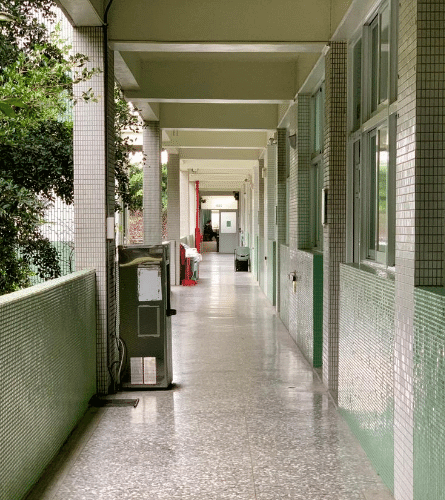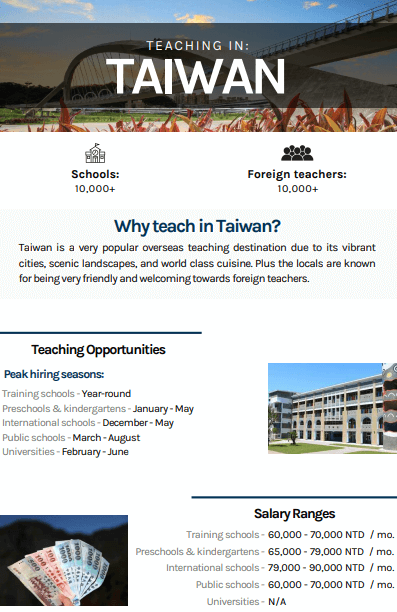Teach English in Taiwan
Taiwan is full of great people, amazing culture, and beautiful sights
Why teach abroad in Taiwan?
If you’re interested in teaching in Taiwan, you should be aware that Taiwanese students often graduate with some of the highest scores in the world on comparative international tests. Many Taiwanese students are specifically skilled in technical areas like science and mathematics, which is probably one of the key factors in Taiwan’s success in the IT industry.
Benefits of moving to Taiwan to teach:
- High quality of life
- High demand for foreign teachers
- Low cost of living & huge potential for saving money
- A unique combination of urban progression and traditional Chinese culture
Overview
Requirements to teach in Taiwan:
- Hold a Bachelor’s degree
- 0-2+ years of teaching experience for K-12
- Native English speaker
Average monthly salary in Taiwan:
60,000 – 90,000 TND / month
This varies based on experience, hours worked, and the type of school that you work in.
Cost of living per month in Taiwan:
25,000 – 60,000 TND / month
This varies by lifestyle and city that you choose to live in.
Demand for foreign teachers in Taiwan
Choosing to teach in Taiwan is a great way to get your foot in the door, and you will learn just as much from the students as they do from you. English schools are very common here, especially in the larger cities. Teaching in Taiwan also gives you the option to travel during your off time, which you will have plenty of! The demand for English teachers in Taiwan is high, and the cost of moving there to teach is do-able, especially in the long run! Many people that start off in completely different careers end up teaching abroad, and they never look back! Taiwan is a great place to start a life, but it also works perfectly for people that want to start teaching abroad and maybe go somewhere else after a few years.
Curriculums used in Taiwan
The four main curriculums taught in Taiwan are IB, U.S./AP, local/mixed, and the National Curriculum for England. If you have experience teaching any of these, you’ll be able to easily secure an incredible teaching job in Taiwan. Even if you don’t have experience teaching any of these curriculums or you have no teaching experience at all, you’ll be able to get a great teaching job in Taiwan as a beginner teacher!
Learn more about other curriculums taught all over the globe.

Teaching IB in Taiwan
As of 2020, there are 8 schools in Taiwan that use the IB curriculum. This equates to hundreds of IB teaching positions, many of which are available to foreign teachers. Learn more about teaching IB in Taiwan, and check out the history and an overview of teaching IB abroad in our blog.

Teaching AP in Taiwan
There are many schools in Taiwan that offer AP courses to students. To be able to offer AP courses, a school must submit its curriculum to the AP program to ensure that the proper standards are being met. Teachers must prepare their students for the AP exams that usually take place within the first two weeks of May.
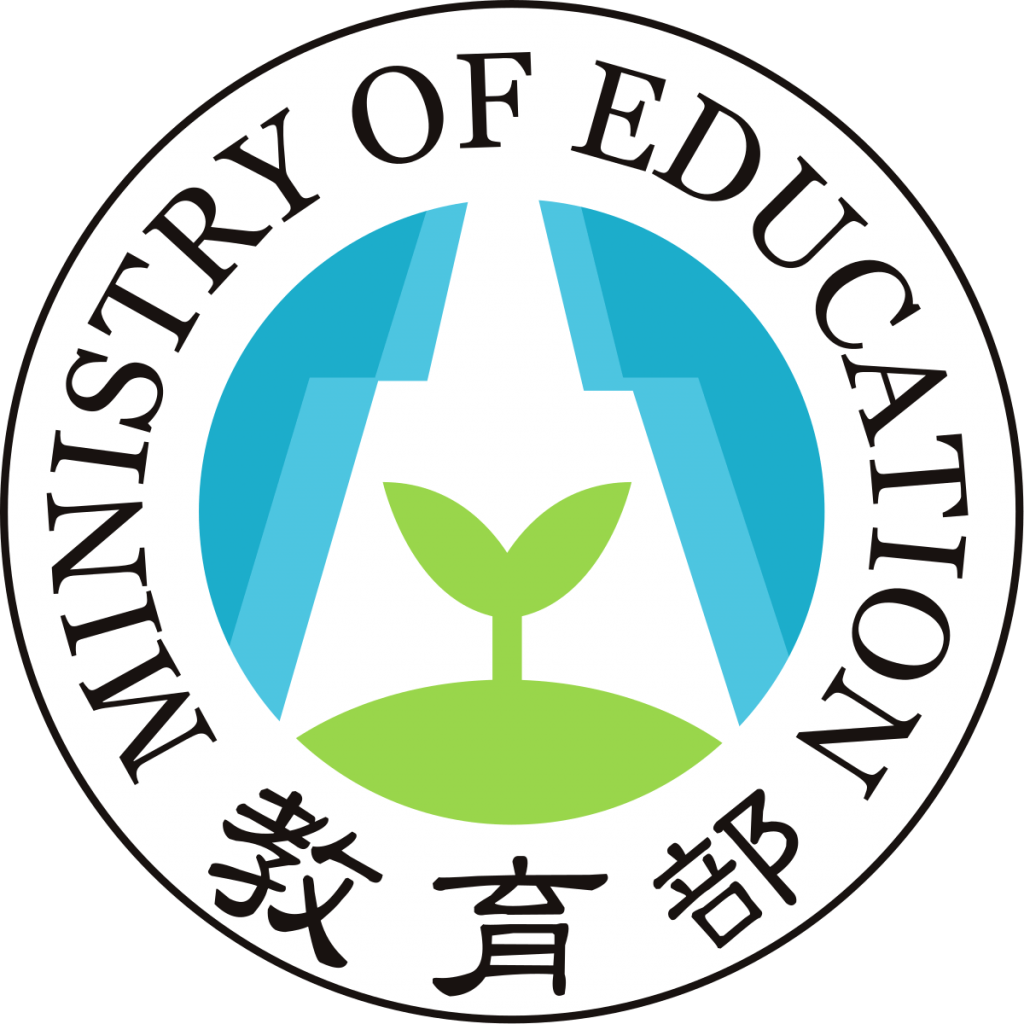
Teaching the local/mixed curriculum in Taiwan
In 2000, Taiwan decentralized its school curriculum and textbooks. The Ministry of Education set national curriculum guidelines, known as Learning Areas. The seven Learning Areas are Science & Technology, Mathematics, Language Arts, Social Studies, Arts & Humanities, Health & Physical Education, and Integrative Studies (activities that encourage reflection on the learning process and real-world applications). Individual schools and teachers develop the curriculum and choose which texts to use.

Teaching the National Curriculum for England in Taiwan
The National Curriculum for England is the set of standards used to through England & Wales to ensure that all children are learning the same things as they move through schooling. The curriculum is set out in 4 required key stages for students ages 5 – 16. With an optional key stage 5 for ages 17 & 18 (years/grades 12 & 13). Students attending international schools almost always include key stage 5, also known as college, in the British sense of the word.
The curriculum defines the fundamental aspects of learning including the subjects to be taught, the knowledge, skills, and development with each subject. The level of ability students are expected to achieve in the subject, and lastly how students will be assessed. With that framework, schools are free to plan and organize lessons as they see fit.
Accreditation for the National Curriculum for England comes directly from the UK Department of Education and includes a scheme for overseas schools, called BSO’s (British Schools Overseas) to verify they meet the standards of UK schools.
Why consider teaching in Taiwan?
Teaching jobs in Taiwan include preschool, kindergarten, elementary school, junior and senior high school, universities, and adult education. A really generous benefit for all teaching jobs in Taiwan is that it includes national health insurance and at least 10 days of vacation time. The salary range in public schools is usually between $2,000-2,400 USD per month. Most of the teaching jobs require the applicant to hold a degree in education or have attended a teachers’ college, and sometimes even a half year of internship is required. Most programs in education typically last four years (128-148 credits). Teaching English in Taiwan can be a great way to save extra money or pay off student loans while enjoying a rich overseas experience.
If you enjoy big city living, then Taipei is the perfect teaching destination in Taiwan for you! Taiwan is a bustling city with over 7 million people living in the metro area. Plus, Taipei has an interesting mix of a big city feel and a tropical ambiance. There are a ton of students in Taipei that want to learn English and therefore, the city is filled to the brim with open ESL teaching positions.
Taichung offers more of a relaxed feel compared to Taipei and Kaohsiung. Many people have even called this city the heart of Taiwanese culture. Here, you’ll find many night markets, museums, and a gorgeous opera house. In Taichung, you’ll also have easy access to stunning hiking trails and more of nature’s amenities. It’s still a large city with a lot to do, but if you’re looking for something a little less energetic, then Taichung is a great option for you!
Kaohsiung is Taiwan’s most important port city on the southern coast. It is the third-largest city in Taiwan by population, and it contains some of the biggest businesses in its modern skyscrapers. As Kaohsiung continues to grow and become more of a globalized city, the need for English teachers steadily grows, meaning, there are many available teaching opportunities for both beginner and experienced teachers there.
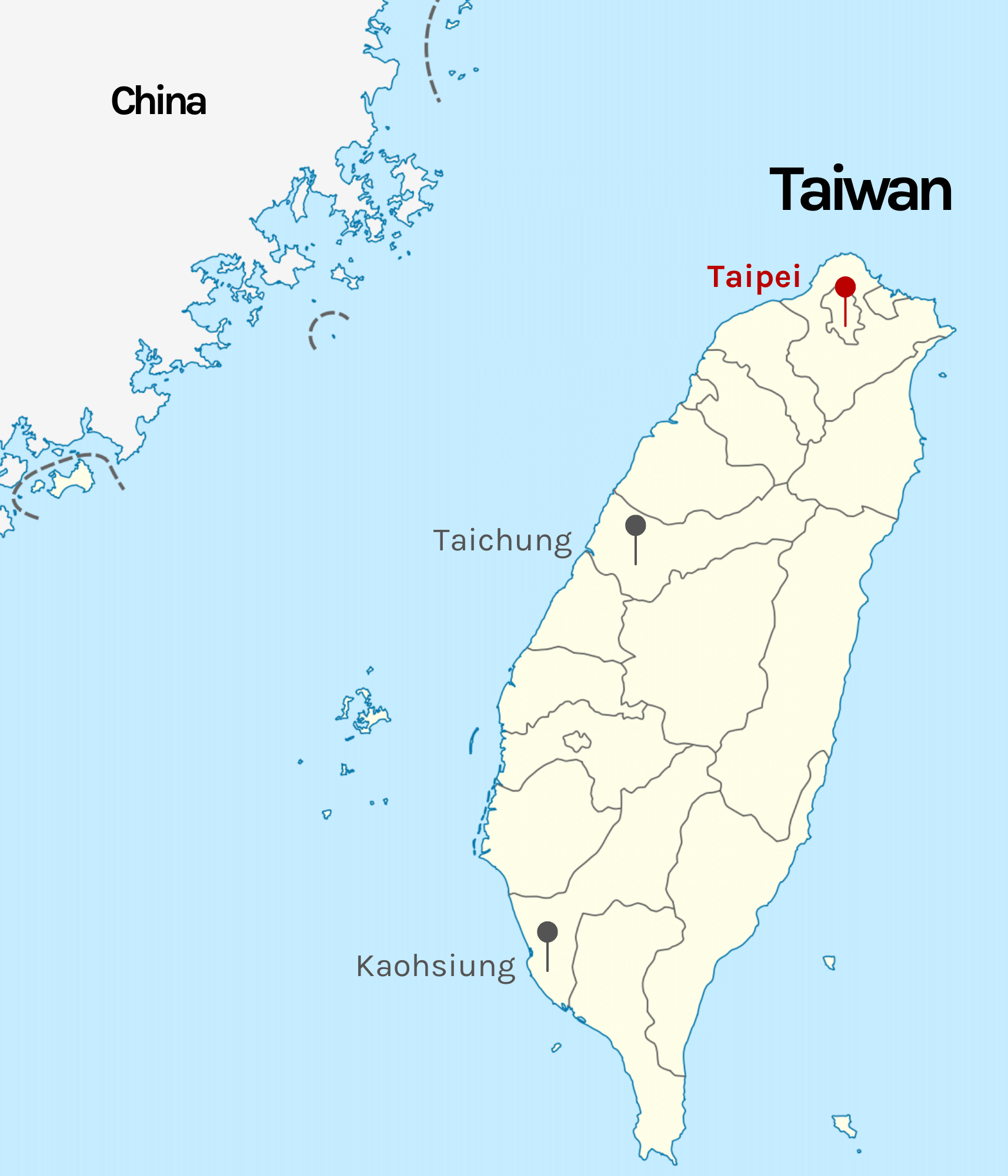
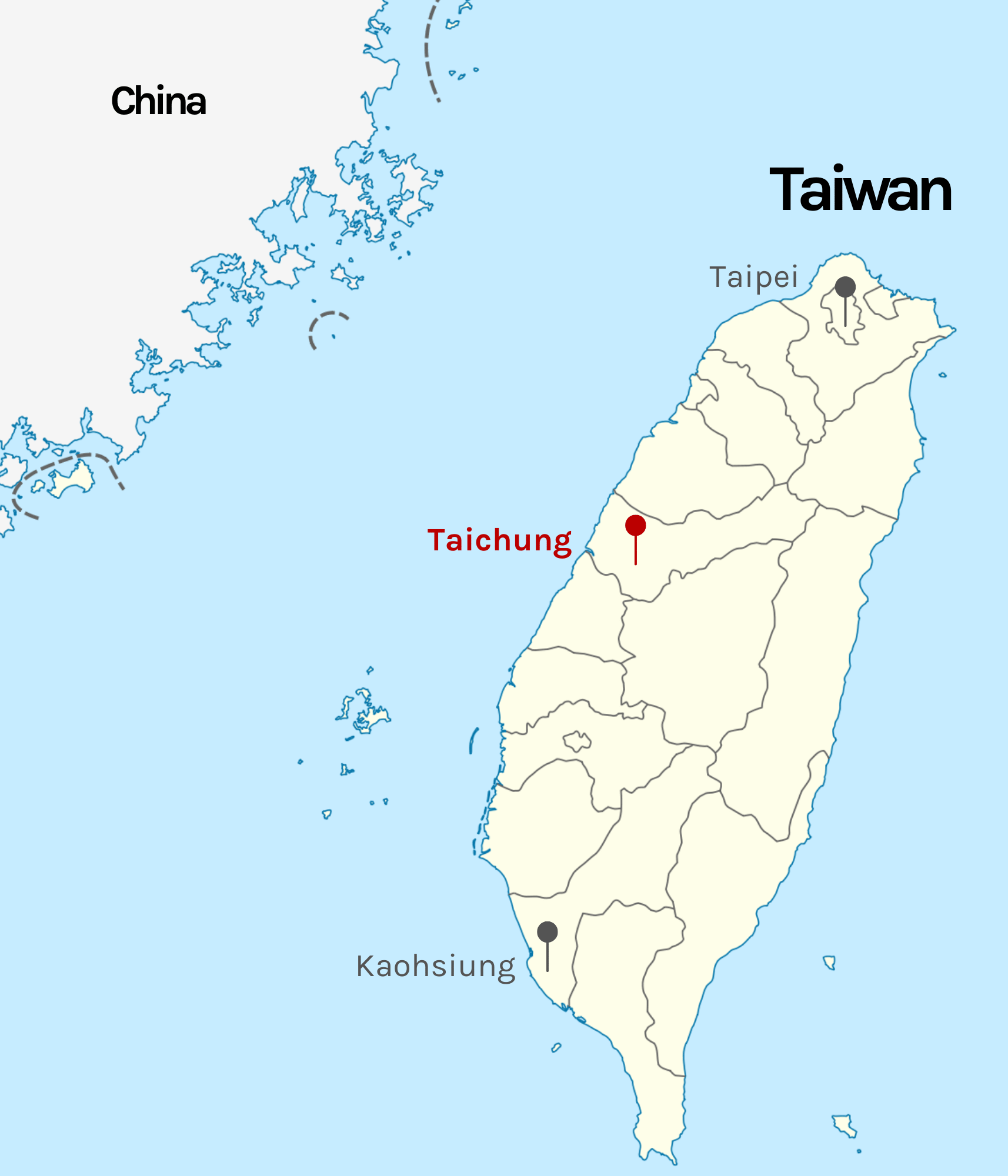
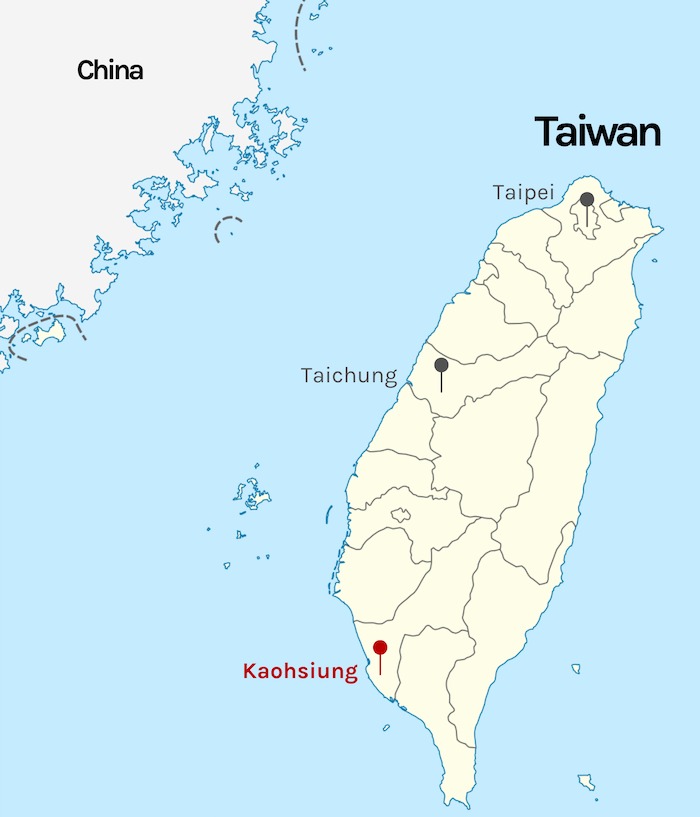
Types of schools in Taiwan
If you want to teach in Taiwan, you’ll have options in training schools, preschools, kindergartens, international schools, and public schools. Each has its own pros and cons of working there, so you’ll need to decide what’s most important to you prior to accepting a job. If you want more time off, find a role that allows for that. If you want to make more money, find a role that fits that.
Training centers in Taiwan
Many foreign English teachers in Taiwan teach at training centers. These schools are attended by kids or adults in the evenings and weekends specifically for English language instruction.
Positions at training centers are often easiest to secure as there is a high demand for these classes, and they hire year-round. Each center has its own specialized curriculum, as well as teaching and training materials which means planning and preparation time are minimized.
Preschools and kindergartens in Taiwan
The name says it all, the children in these institutions are 18 months to 6 years old. Teaching English in a kindergarten or preschool is a very common job in Taiwan.
Teachers can expect a friendly working environment and a teaching assistant in the classroom with them. There will be plenty of fun teaching materials available and little time is needed for preparation. Classes typically have 8-20 young learners and are between 20-40 minutes long.
International schools in Taiwan
These schools are where professional expats and wealthy locals send their children. Tuition for the students is high and enrollment is very competitive. This means that teacher remuneration is fantastic (especially if you have children) but these jobs will often require a teaching license and graduate degree.
Classes are held on the traditional two-semester schedule and almost all classes are taught in English. These schools often require a 2-year commitment from the teachers. Most International Schools will follow either the International Baccalaureate (IB) or the foreign (A-level/AP etc.) curriculum, so teachers with experience and familiarity with these curricula are preferred.
Public schools in Taiwan
Public schools (particularly in bigger cities) score well on all fronts. Decent salary & benefits, reasonable teaching load, and more paid vacation days. Since Taiwan public school education is notoriously competitive, your students will be diligent, well-behaved, and smart but you will sometimes have up to 60 of them in your classroom! Jobs in this category will sometimes require a graduate degree and/or a teaching license.
Schedule and start dates
K-12
Fall starts in August/September
Spring starts in March
Training Schools
Rolling start dates year-round
Start anytime!
K-12 & Universities work on the same schedule as western countries with the fall semester starting in late August or early September and the spring semester starting after the Chinese New Year, March, (based on the lunar calendar). For fall positions we suggest applying 4-5 months in advance and 2-3 months in advance for spring. In addition, Taiwan has many training schools, which hire new teachers every month! No matter your schedule, we’ll be able to help find the best teaching opportunities available.
Salary and benefits while teaching English in Taiwan
There are many different types of schools to choose to work at in Taiwan, so you’ll want to do a little research on each one to figure out which type will best suit your lifestyle, salary, and time-off needs. There are often trade-offs that you will need to consider with each type of school. For example, if you want a higher salary, you’ll need to work more hours, so maybe you should consider an international school. However, if you want more time off, you may want to work at a university where you’ll have less working hours and a lower salary.
Here’s how experience & qualifications can affect your earning potential:
Bachelor’s Degree:
This is a minimum requirement for teaching in Taiwan. Possessing this, along with a TEFL certification should set your starting salary at no less than 60,000 TND/month (depending on how much you work).
TEFL/TESOL Certification or 1-year teaching experience:
This is the other minimum requirement for teaching in Taiwan, as well as the minimum for Teaching Nomad. Generally, even if you have a year of experience, most training schools, or cram schools as they are known in Taiwan, will still require TEFL certification. If you need to get certified, click here for information on our TEFL certification course.
Teaching license and/or degree in education:
If you are licensed to teach in your own country, the sky is the limit in Taiwan. English medium K-12 and international schools offer salaries starting around 65,000 NTD and can go up all the way to 90,000+ NTD plus housing, benefits, and more!
Post-graduate degree:
Especially at K-12 English medium and international schools, an advanced degree (PGCE, M.Ed, etc.) will often move you up on the salary scale and open the door to more opportunities. Learn more about M.Ed options through Teaching Nomad.
Location:
For being such a small country (between the size of Maryland & West Virginia) there is a fair amount of diversity amongst its most popular cities. Enjoy big city living in Taipei or stay closer to nature in Taichung. Taipei will have the highest cost of living so if saving money is a top priority, you will want to consider other cities.
Hours:
In some cases, you will be paid hourly, while other schools offer a set salary. Training schools generally require you to teach 20-26 hours, and typically pay between 55,000-65,000 NTD. The working hours will be evenings and weekends. K-12 schools will require a full 40 hours/week comprised of teaching and planning. School hours follow the traditional Monday – Friday, daytime schedule.
Benefits:
Common benefits include medical insurance, airfare, end of contract bonus, and assistance upon arrival including hotel accommodation. It is not as common to receive free housing in Taiwan as compared to South Korea.
Document Legalization
In order to get a visa to teach in Taiwan, you must get some of your teaching documents authenticated by the Taiwanese Embassy. This can be a difficult process on your own, so we now offer a service that gets it done for you, hassle-free!
What our teachers are saying
I’d highly recommend Teaching nomad because it is a reputable, international agency that has teaching opportunities all over the world. Their website is easy to use, the consultants are attentive and help you throughout the process. I’d choose them all over again.
I was helped by Moira, and the support provided to me was second to none. I’m super grateful for the support. Finding a job during this difficult period would have been a challenge on my own, however, the assistance from Teaching Nomad made the process much easier. They also offered continuous support once I started working. They have been absolutely fantastic.
TN helped me from the very start, which for me was trying to decide which TEFL certification to go with. From there my consultant, Moira, helped me with the documents I needed, gave me resume tips, sent off my profile to various schools even before my certification was complete, and gave me interview tips when the schools wanted to meet me. Thanks to the help Moira and Teaching Nomad provided, I have just signed a contract with a higher than normal salary for a first-time teacher. Now they are helping me out with authenticating my documents and my application for a visa!
Blogs about teaching abroad
Learn all about teaching, traveling, and living abroad!
Short Term Teaching Abroad: How to Turn a Few Months into a Life-Changing Adventure
Have you ever dreamed of teaching abroad but felt unsure about committing to a full year? You’re not alone. Whether you're between degrees, on a career break, or just testing the waters of international teaching, short term teaching abroad is a fantastic way to...
How to Find the Best Summer Teaching Jobs Abroad in 2025
Looking for a way to spend your summer doing something meaningful and adventurous? Summer teaching jobs abroad are a fantastic option for those who want to travel, build teaching experience, and make a positive impact — all during a few exciting weeks away from home....
7 Countries to Teach English Abroad
Teaching English abroad is more than just a job—it’s your passport to cultural immersion, global adventures, and making a real impact in students’ lives. With so many amazing destinations to choose from, figuring out where to go can feel a little overwhelming. Don’t...

